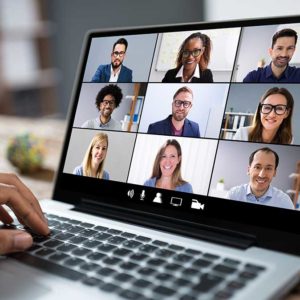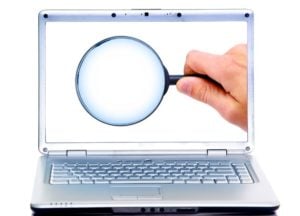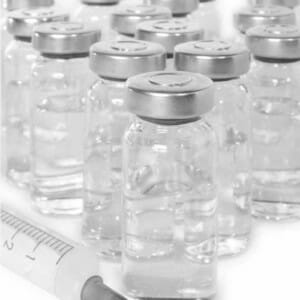Remote Auditing Techniques & Training
USD $40.00
Course duration: Allow 1.5 to 2 hours to complete this course.
- Satisfaction Guaranteed
- No Hassle Refunds
- Secure Payments
Description
Remote Auditing Techniques
Virtual Auditing Guidelines & Remote Auditing Training Including in GMP environments.
Remote Auditing Techniques: A Certificate GMP Training Course for planning and conducting offsite inspections.
Remote compliance audits (for PIC/S GMP and ISO standards) are on the rise, including for virtual audits of overseas suppliers.
Learning remote auditing techniques can help reduce auditing travel expenses and carbon emissions. It also eases time burdens on Auditing personnel.
Hybrid audits (onsite and offsite components)
In cases where a fully remote audit is not appropriate, learning remote auditing techniques (virtual auditing skills) can help Auditors shorten the typical duration of their onsite inspection visits. This makes regulatory compliance Audits easier to schedule, and far less disruptive to both the Auditor’s and Auditee’s schedule(s).
Conducting a remote audit or ‘virtual inspection’ requires risk-managed auditing strategies and thoughtful planning.
Although there are many benefits to remote inspections, Remote Auditing is not necessarily an easier option; it may just be a better option (or even the only option) so long as your auditing planning is sufficient.
You’ll need to learn best-practice Remote Auditing Techniques, such as offered via this Certificate Training Course covering remote auditing techniques and planning requirements.
- Overall, remote audits continue to expand in scope and volume.
- Advanced ICT capacities (internet and communication technologies) are also available to auditors and auditees.
However, these new technologies (ICT) for conducting remote audits can lead to file-transfer security issues that must be addressed.
To help you understand the risks, benefits and techniques required for conducting a remote audit, this online Remote Auditing techniques training course will help you improve:
- Your remote auditing capacity
- Remote auditing planning and procedures
- Remote auditing interviewing strategies
This Certificate Training Course in Remote Auditing Techniques:
- Will help Regulatory Authorities, Auditors, and Quality Managers (Auditees) who participate in remote audits
- Will help stakeholders who plan for/participate in hybrid audits covering regulatory compliance issues
It includes remote auditing techniques, planning tips, and best-practice remote auditing procedures to ease the offsite inspection/offsite auditing process.
- This Certificate course is available to access (online) immediately after purchase (online).
- Once you finalise your purchase, check all email folders for your log-in instructions.
- On successful completion of this course, you’ll be granted a Certificate of Completion which you can download, print, and add to your personnel files and CV/professional profile.

Remote Auditing Techniques: Onsite vs Offsite Auditing Procedure
Using Remote Auditing Techniques/Virtual Auditing strategies can help:
- Protect public health and safety, such as during a pandemic or other disease outbreak
- Increase auditing capacity during times when onsite inspections are either not feasible or would result in an audit timeframe delay
- Reduce risks to Auditors
History of Remote Auditing in Regulated Environments/GMP Facilities
Remote auditing/electronic document reviews and video site inspections have been used for some time to assess the capacities of overseas suppliers in the Pharmaceutical and Medical Device sectors.
- However, the pandemic that started in 2019 began restricting site visits, and significantly limited onsite auditing opportunities for Regulators and Quality Managers with remotely-located suppliers.
- Travel restrictions and border closures during the global crisis also coincided with a growing demand for new and existing medical products and medical devices
- These combined events meant higher risks, emphasizing the need to audit new suppliers as rapidly and effectively as possible
- This led to requirements for remote audits (including GMP compliance audits and new supplier audits) using virtual auditing techniques such as video conferencing.
The combination of (a) restricted onsite auditing opportunities and (b) higher demands for medicinal supplies increased the risk of harms to public health, practitioner safety, and supply chain security. These events also limited the ability of Auditors to sustain their auditing schedules.
This higher demand for therapeutic goods — along with interruptions to medical supply chains and numerous new manufacturers entering the global supply chain during a time of peak demand — meant that any delays in Facility Inspection/Auditing schedules could endanger public health and safety.
- These factors led to remote auditing techniques becoming a “GO TO” auditing method for GMP compliance audits and other regulatory compliance monitoring requirements
- Remote audits became a necessity and preferred option when auditing schedules would otherwise fall significantly behind schedule, and/or place public health and safety at risk.
Note: While remote auditing techniques can be effective, remote inspections/offsite auditing procedures must be formally risk-assessed; planning is also crucial for conducting a remote audit/offsite inspection.
Learn best-practice Remote Auditing Techniques
Remote auditing techniques/offsite inspection procedures are important skills to learn to help keep your auditing schedules on track.
Supply Chain Demands
Demand for pharmaceutical products and medical devices, including PPE, respirators, and sterlisation/sanitisation products, rose drastically from 2020 through 2022, with demand for certain products remaining high through the year 2023, and well beyond.
- New manufacturers continue to enter global supply chains
- Several countries are in the process of expanding their own manufacturing capacities to meet increased domestic product demand and safeguard their medical supply chains, including prevention of falsified/counterfeit medicines and fake medical devices
Certain medicines and medical devices remain in high demand including respirators, protective face masks, anti-viral medications, and new vaccines. New (less familiar) manufacturers and suppliers are continuing to enter the global supply chain. Regulatory Compliance Auditing schedules must therefore be maintained to protect patients, pracitioners, and consumers of therapeutic goods. This means Remote Auditing continues to be a necessary auditing option for the industry (fully remote inspections and/or hybrid-audit situations).
This means learning remote auditing techniques is a necessity for Auditors, Regulators, 3rd party auditors, Organisations and Auditees (Quality Managers, Department Managers, and their production and distribution teams).
Who should learn Remote Auditing Techniques?

Remote Auditing Techniques: Tips from Auditing Experts
This Certificate Course on Remote Auditing techniques and procedures was informed by:
-
- Remote auditing guidance publications/regulations
- Industry experts on regulatory compliance audits
- Quality Managers (QMS and PQS Managers)
- Inspectors’ experiences using virtual auditing tools and techniques
Who should complete this Remote Audit Training course to learn virtual auditing techniques?
This course is suitable for any professional and industry where remote audits are conducted; with additional sections specifically designed to assist GMP professionals including Auditors, Regulators, and Auditees.
Anyone involved with auditing, either as an Auditor or Auditee, is likely to benefit from this course, which covers basic and advanced techniques for remote auditing.

- This course helps Quality Management and Auditing professionals understand current industry guidelines (and helpful tips) for conducting a remote audit or ‘offsite inspection’.
- This includes conducting an offsite/desktop audit of SOPs and other key documents, GMP compliance inspections via video links, and/or remote audits of compliance with other industry standards (such as ISO).
- It contains helpful information on recently released guidelines and in-progress discussions regarding the development of globally accepted industry guidelines (Remote Audits and virtual inspections).
- This course includes highlights from recent guidance on remote auditing requirements, including guidance from key Regulatory Authorities such as:
The course also includes remote auditing procedures and helpful ‘remote inspection tips’ gleaned from top Pharmaceutical Industry auditing experts and Quality Managers.
To order, scroll up and add the number of licences required to your cart, then complete your purchase. Next, check your emails (all folders) for your login information. You will have 12 months’ access to the course, which also provides you with a Certificate of Completion after you successfully complete the online assessment.

About this Remote Auditing Techniques and Procedures Course
Opportunities and Challenges during Remote Auditing (offsite evaluations)
- This online course for Remote Auditing provides an overview of considerations (that Auditors and Quality Teams should take into account) when planning and conducting an offsite audit or remote inspection
- The course details types of remote auditing methods (such as hybrid auditing methods) and ICT considerations including data security and file transfer considerations.

Remote Auditing Guidelines and Remote Inspection Techniques
Remote Auditing Techniques FAQs this course helps answer:
- What do Regulatory Authority auditors and other Inspectors and Investigators need to know in order to conduct a Remote Audit successfully?
- What are the benefits of conducting remote audits vs onsite inspections during a global pandemic, when onsite auditing is risky to Auditors and other personnel (or travel to certain manufacturing regions is prohibited)?
- What are the Information and Communication (ICT) technologies to consider?
- What opportunities and risks arise when relying on remote auditing technologies?
- How do you determine the auditing scope?
- What about following up (and future audit requirements)?
- What are your options for auditing when an offsite audit isn’t suitable?
This Remote Auditing Techniques training course will help Auditors understand:
- How to plan, prepare for and perform a remote audit or remote interactive evaluation
- Best practices for performing remote audits (remote audit procedures and checklists)
- How to determine if a remote audit is likely to meet the auditing objectives
- The challenges and opportunities of various ICT used to conduct an audit
- Data security issues and IT considerations for remote audits
- Challenges of video-based site inspections and other digital technologies
- Regulatory Guidance for conducting a remote audit including IAF MD4
- The importance of documented risk assessments and confidentiality/security agreement
- Technological challenges and ICT issues to consider
- File sharing permissions/web-based access and system compatibility issues
- Security and data breach risks that may be posed by remote audits and ICT
- Additional content that must be included in a remote audit report
The events of recent years resulted in a substantial increase in Remote Audits (the TGA’s term) and Remote Interactive Evaluation (the FDA term). To address the gap in knowledge of performing a remote audit in this industry, our new course will help you learn how to prepare for a remote audit, including ICT and data security considerations.
FDA guidance on remote inspections/remote audits
FDA news release (RIE)
FDA guidance on remote inspections/ Remote Interactive Evaluations (GMP compliance audits).
- The FDA first published non-binding guidance on remote auditing in April 2021 to help the pharmaceutical manufacturing industry implement remote auditing procedures.
- Other Regulators from numerous countries also worked together to develop globally accepted guidelines for conducting Remote Audits of GMP compliance with PIC/S GMP regulations and other standards, including ISO.
Find out what’s expected in this remote auditing techniques training course, including audit planning tips sure to benefit any professional working in an auditing or auditee role.









